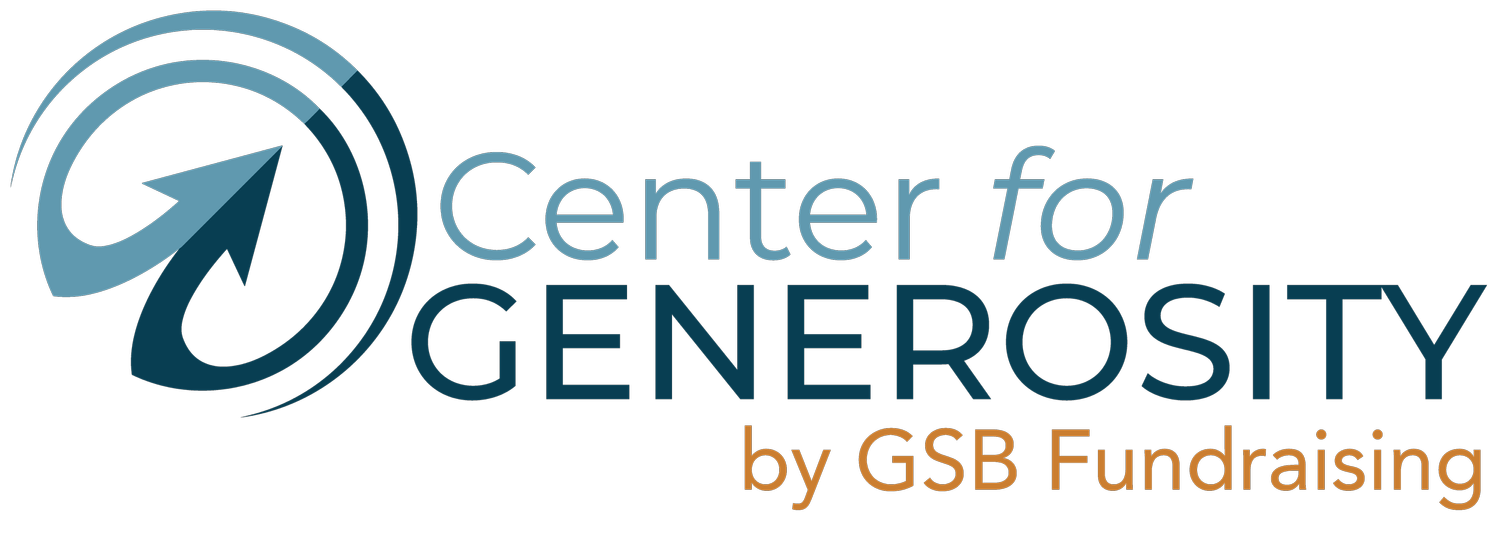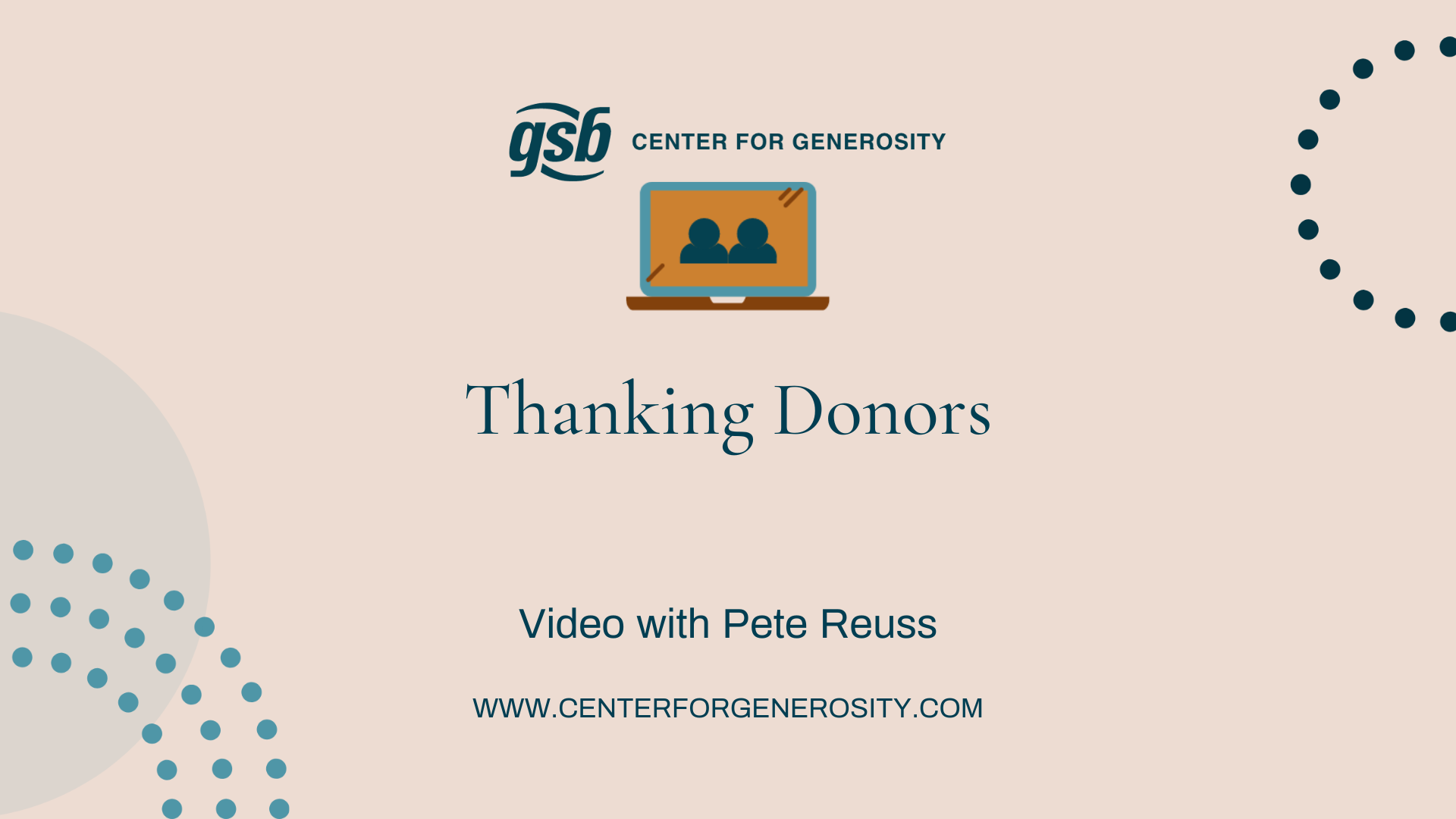Resource Library
Search by Topic
- 10 Steps of Fundraising
- Acknowledgements
- Annual Fund
- Appeal Letters
- Board Governance
- Capital Campaigns
- Case Development
- Challenge Gifts
- Congregation Governance
- Congregations
- Crisis Management
- Database
- Development Councils
- Development Plan
- Donor Relations
- Executive Leadership
- Giving Trends
- Gratitude
- Human Resources
- Lapsed Donors
- Major Gifts
- Marketing
- Matching Gifts
- Mission
- Non-Profits
- Planned Giving
- Public Relations
- Recurring Giving
- Samples
- Self-Care
- Special Appeals
- Special Events
- Stewardship
- Stewardship Appeal
- Storytelling
- Strategic Planning
- The Ask
- Theology
- Tributes
- Volunteers
- Wealth Screen
- Websites
- Youth Fundraising
Special Appeals Series
A Special Appeal allows your organization to invite donors with a specific, timely, and important reason to consider an additional gift. New donors will appreciate the specificity of the request. Many of your regular donors will get excited about the appeal and take part. In this series, GSB Partner Pete Reuss walks through four steps fo special appeals.
Building an Annual Calendar for Generosity - Ending the Year Well
It’s easy for organizations to fall into the trap that inviting gifts only happens on specific dates on a calendar. For congregations, it’s typically in the fall. For other non-profits, it’s the end of the year. A solid year-round plan for generosity, building on an annual appeal and end-of-year, leads to lasting results.
Congregational Culture and Stewardship
When stewardship best practices lead to conflict and anxiety, something in the congregation’s culture around money is the cause. The Adaptive Leadership framework can provide a lens that leads to lasting change.
Your Relationship with Money
How you relate to money as a leader will affect how you lead your organization and donors to experience generosity.
Changing Culture #4 Small Experiments
Cultures don’t change overnight. Taking small, patient steps can lead to new (and helpful) patterns of behavior. This four part series builds on the learning of the previous roundtables.
Changing Culture #3: Uncomfortable Enough to Change
When people are uncomfortable enough for long enough, they become open to change long held traditions. This can directly impact your fundraising. This four part series builds on the learning of the previous roundtables.
Changing Culture #2: Seeing the Big Picture
While it’s easy to act and react, stepping back and gaining perspective will allow for deep reflection that can lead to helpful action. This four part series builds on the learning of the previous roundtables.
Changing Culture #1: Identifying the Issue
When fundraising best practices lead to conflict and anxiety, something in your organization’s culture around money is the cause. The Adaptive Leadership framework can provide a lens that leads to lasting change. This series builds through four sessions.
Cultivating New Major Donors
Most congregational giving charts include a few people at the top. While this is quite normal, the reality is that a significant number of those giving families come from the older age brackets. Growing a strong base of younger givers will sustain ministry even as some major donors leave the congregation (via death, relocation, or other reason). In this Master Class, Rev. Pete Reuss will provide a practical framework of inviting new families to step into this leadership giving role. It includes cottage meetings, current major givers, and the pastoral staff.
Thanking Donors
Congregations expect their people to give of their time and financial resources and readily share their frustration when people don’t step up. It quickly leads to a narrative of scarcity. There’s just not enough. Yet, at the heart, congregations are volunteer organizations. People willingly show up for worship. They choose to give financial gifts. They share their time. It’s amazing to see. What if we moved from a culture of shame and expectation to a culture of gratitude. It begins with thanking people. In this Master Class, Rev. Pete Reuss will move beyond quarterly reports and provide steps to make people feel appreciated for all they do. People who feel appreciated are more likely to take a further step in their journey of generosity.March Roundtable
Making Annual Statements Joyful
Don't bore people with your annual statements. They are a chance to reinforce your message of impact.
Ending the Year well
Nearly one third of all giving to non-profit organizations occurs in the month of December. This provides a unique opportunity to invite end of the year gifts. We will discuss what motivates these gifts (hint: it’s not your budget).
Next Year's Goals for Congregational Leaders
Why would someone increase their giving to your congregation in the coming year? When people think that you will do the same ministry next year, they will plan to give the same amount. We will discuss how clear ministry goals energize people to expand their generosity to make bold things possible.
Biblical perspectives of fundraising
When talking about fundraising in a church or faith-based organization, we often hear, "This is the church. We shouldn't talk about fundraising. We're about faith!" Churches and faith based organizations can greatly benefit from the foundational principles of non-profit fundraising without sacrificing a good theology. When they dismiss these principles out of hand, they do it to their detriment. Utilizing the work of Henri Nouwen, Jesus, and the Apostle Paul, this roundtable will provide Biblical and theological connections between faith communities and fundraising. This frees churches and faith-based organizations to grow in generosity without sacrificing their core beliefs.














